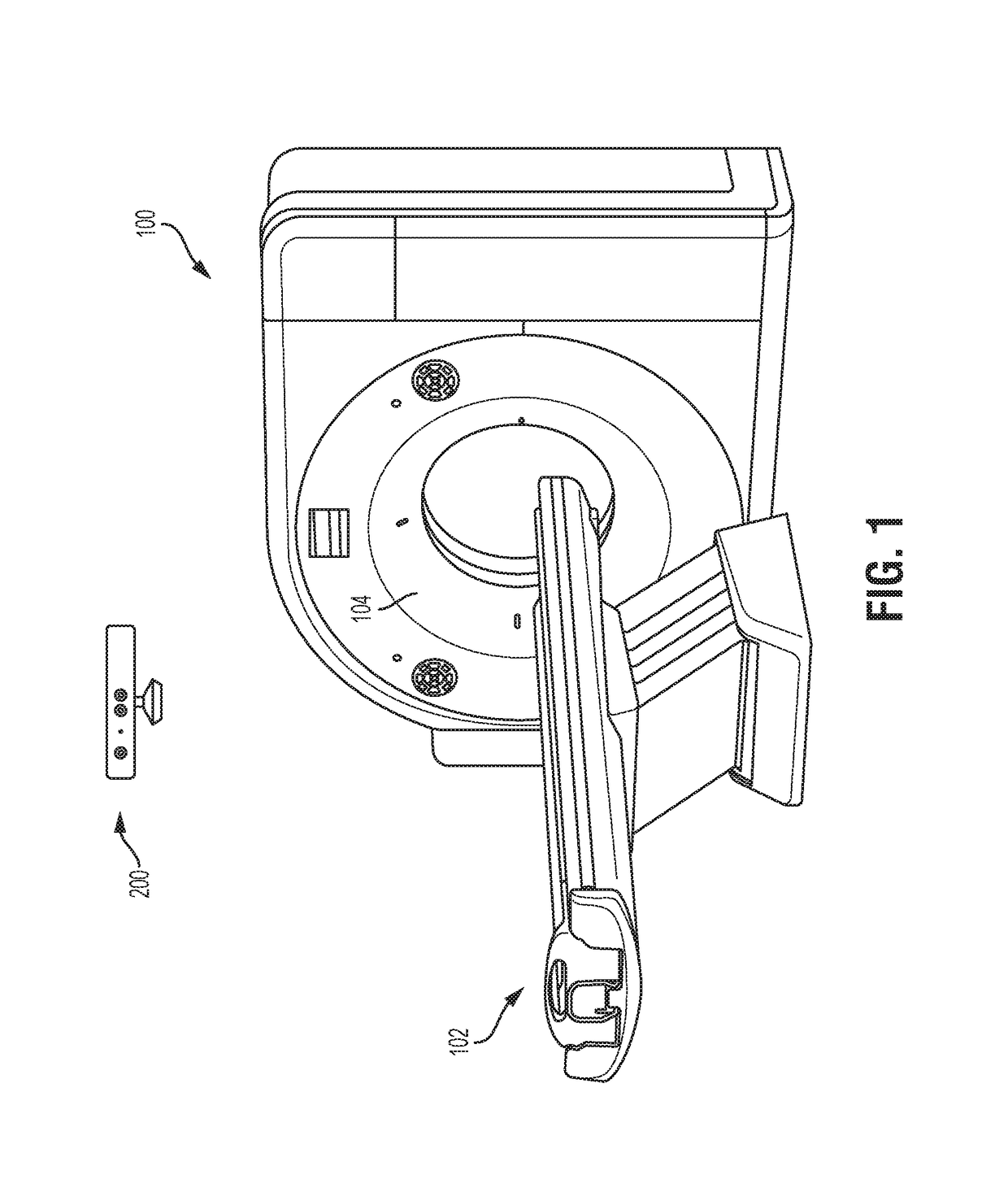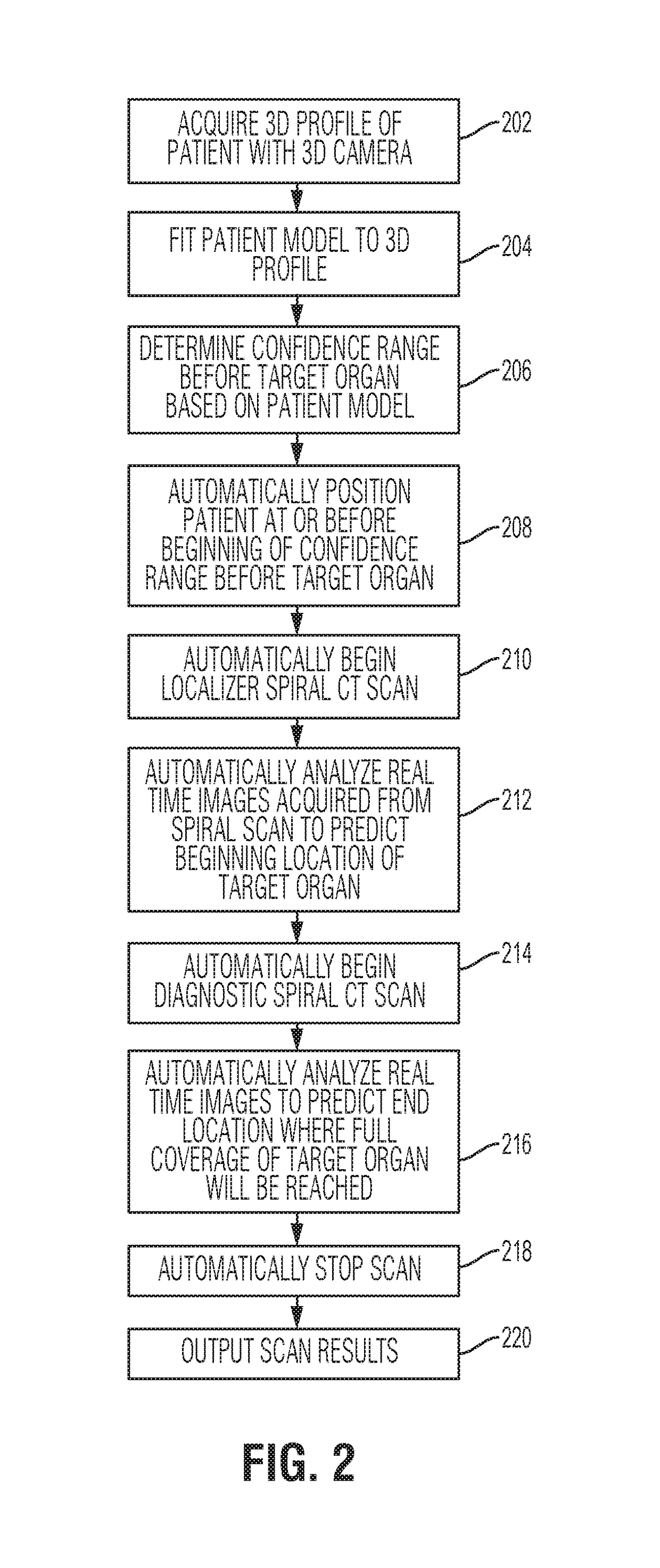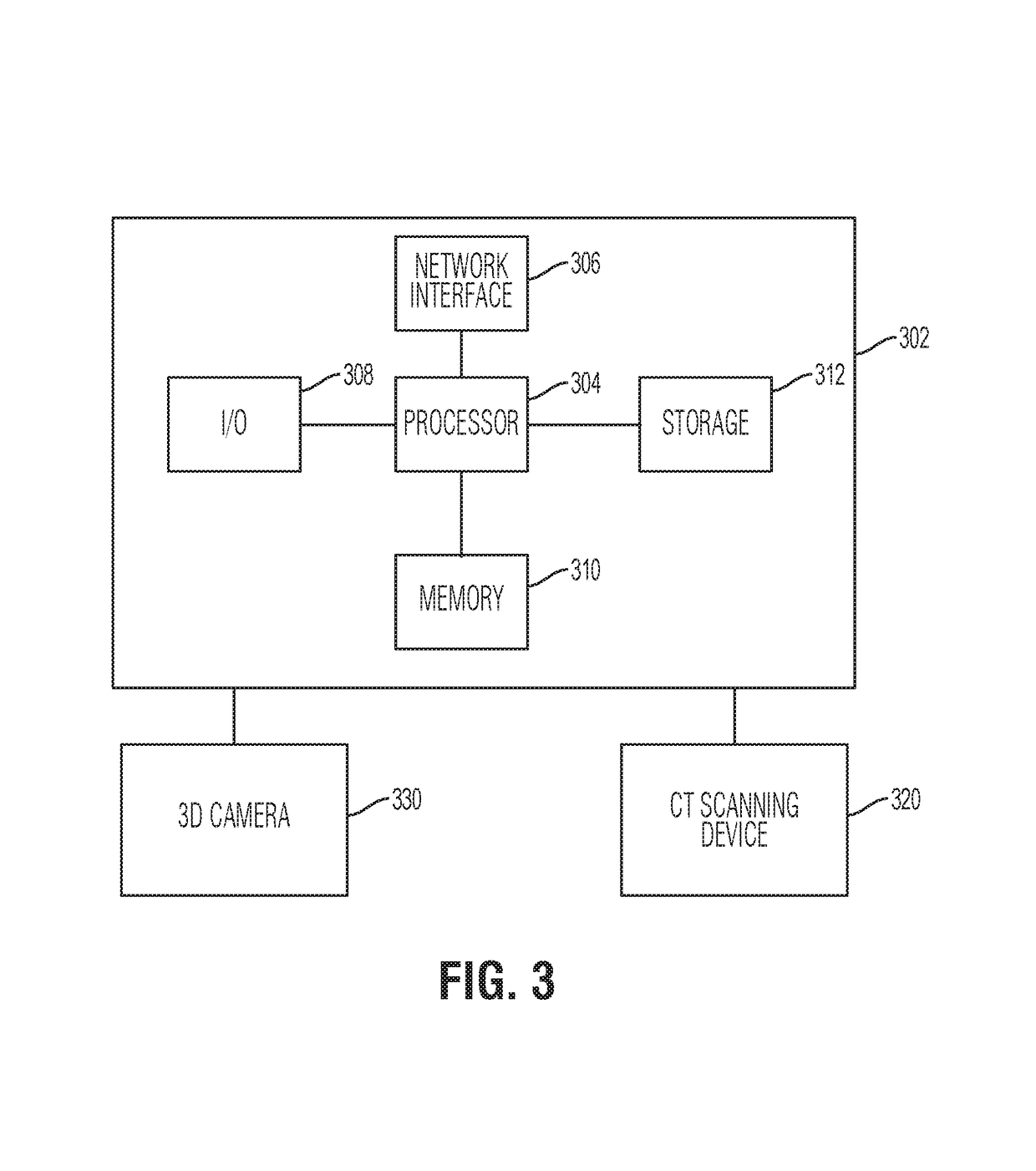Method and system for dose-optimized computed tomography scanning of a target organ
a computed tomography and target organ technology, applied in the field of planning and acquisition of dose-optimized ct lung scans, to achieve the effect of dose-optimized ct lung scan acquisition
- Summary
- Abstract
- Description
- Claims
- Application Information
AI Technical Summary
Benefits of technology
Problems solved by technology
Method used
Image
Examples
Embodiment Construction
[0011]The present invention relates to a method and system for dose-optimized acquisition of a CT scan of a target organ. Embodiments of the present invention are described herein to give a visual understanding of the methods for scan range determination and CT lung scan acquisition. A digital image is often composed of digital representations of one or more objects (or shapes). The digital representation of an object is often described herein in terms of identifying and manipulating the objects. Such manipulations are virtual manipulations accomplished in the memory or other circuitry / hardware of a computer system. Accordingly, is to be understood that embodiments of the present invention may be performed within a computer system using data stored within the computer system.
[0012]Lung scans currently require topographic scans of the patient previous to the actual acquisition of the diagnostic CT lung scan. Such a topographic scan is used to obtain a topogram, which is a scout proje...
PUM
 Login to View More
Login to View More Abstract
Description
Claims
Application Information
 Login to View More
Login to View More - R&D
- Intellectual Property
- Life Sciences
- Materials
- Tech Scout
- Unparalleled Data Quality
- Higher Quality Content
- 60% Fewer Hallucinations
Browse by: Latest US Patents, China's latest patents, Technical Efficacy Thesaurus, Application Domain, Technology Topic, Popular Technical Reports.
© 2025 PatSnap. All rights reserved.Legal|Privacy policy|Modern Slavery Act Transparency Statement|Sitemap|About US| Contact US: help@patsnap.com



